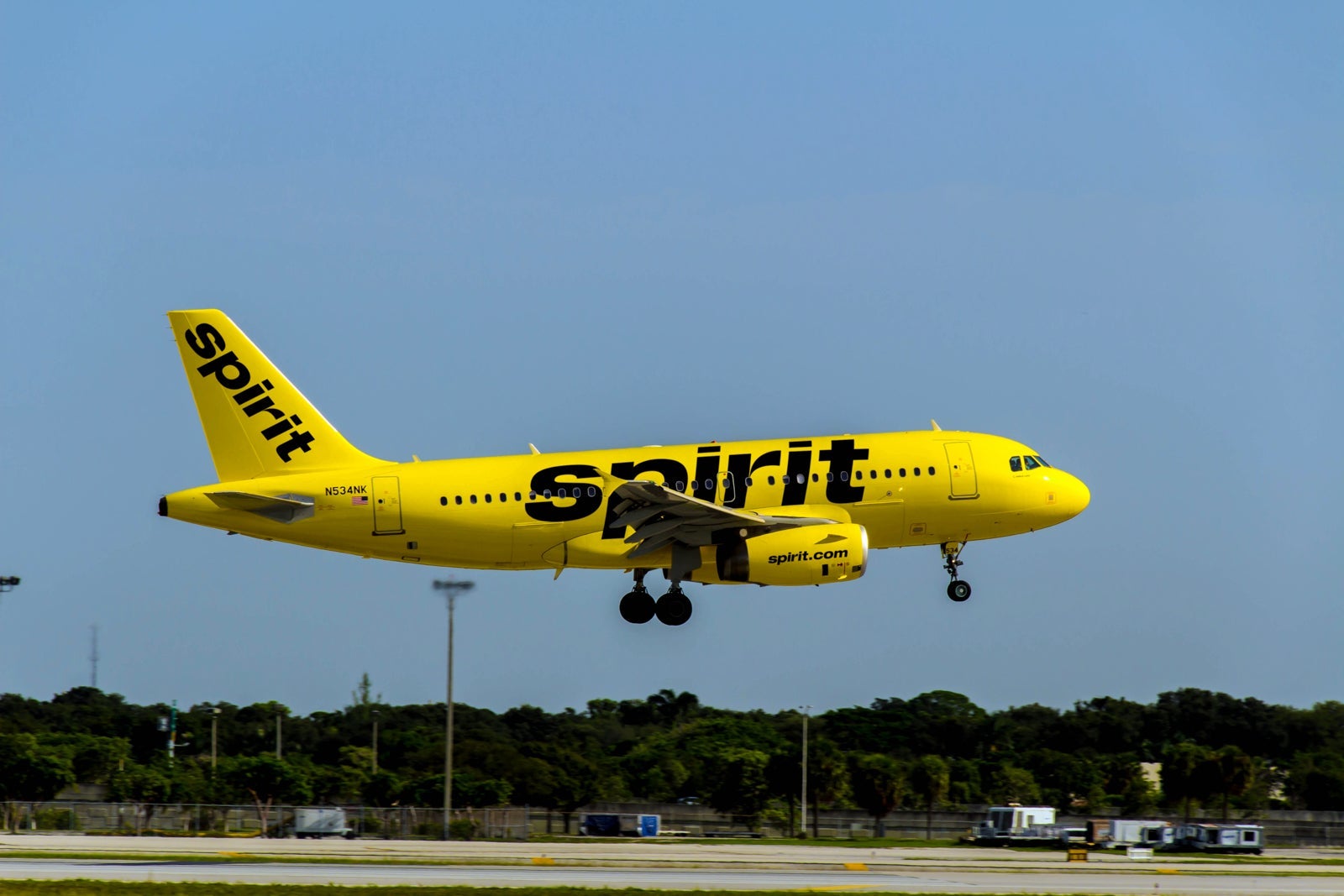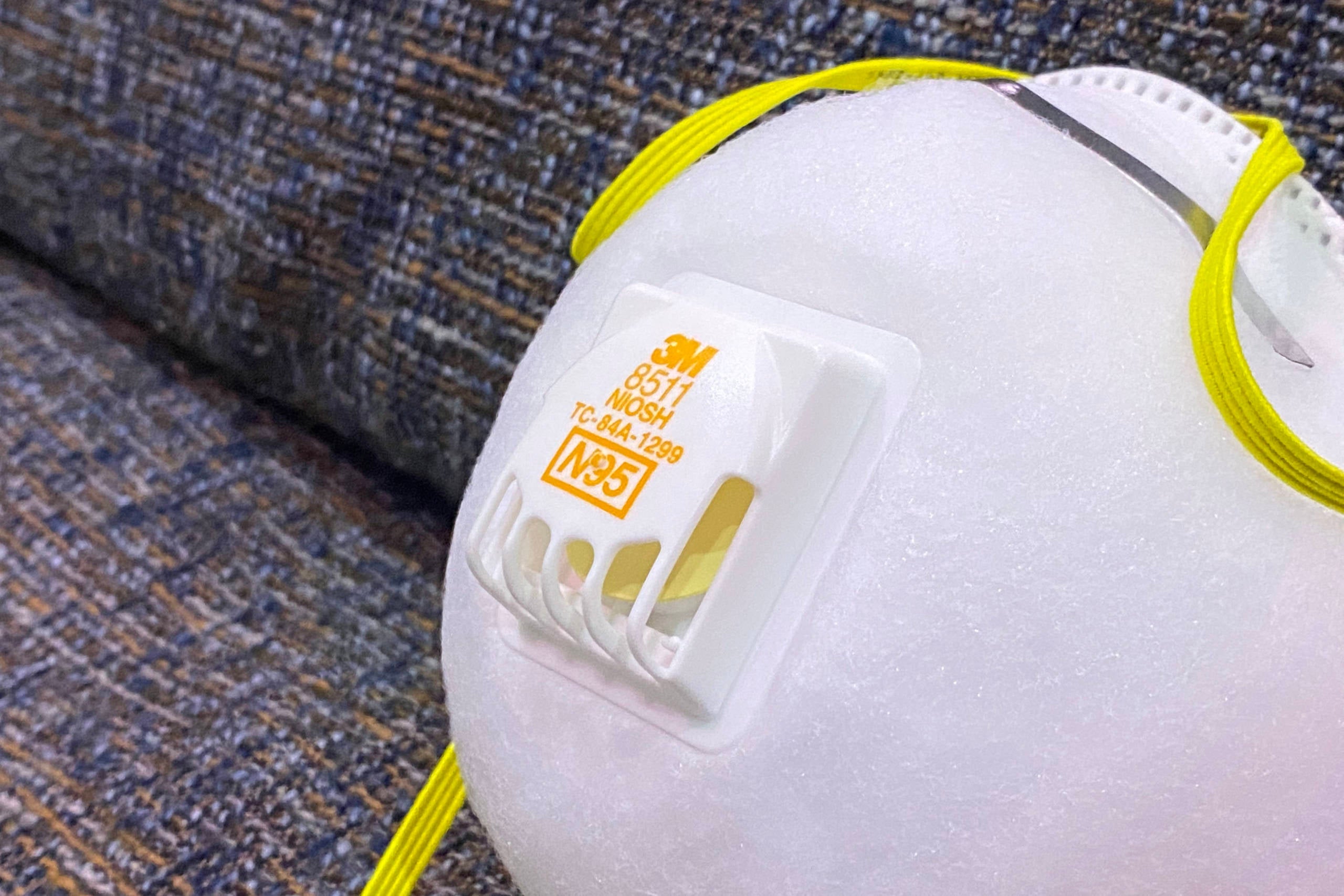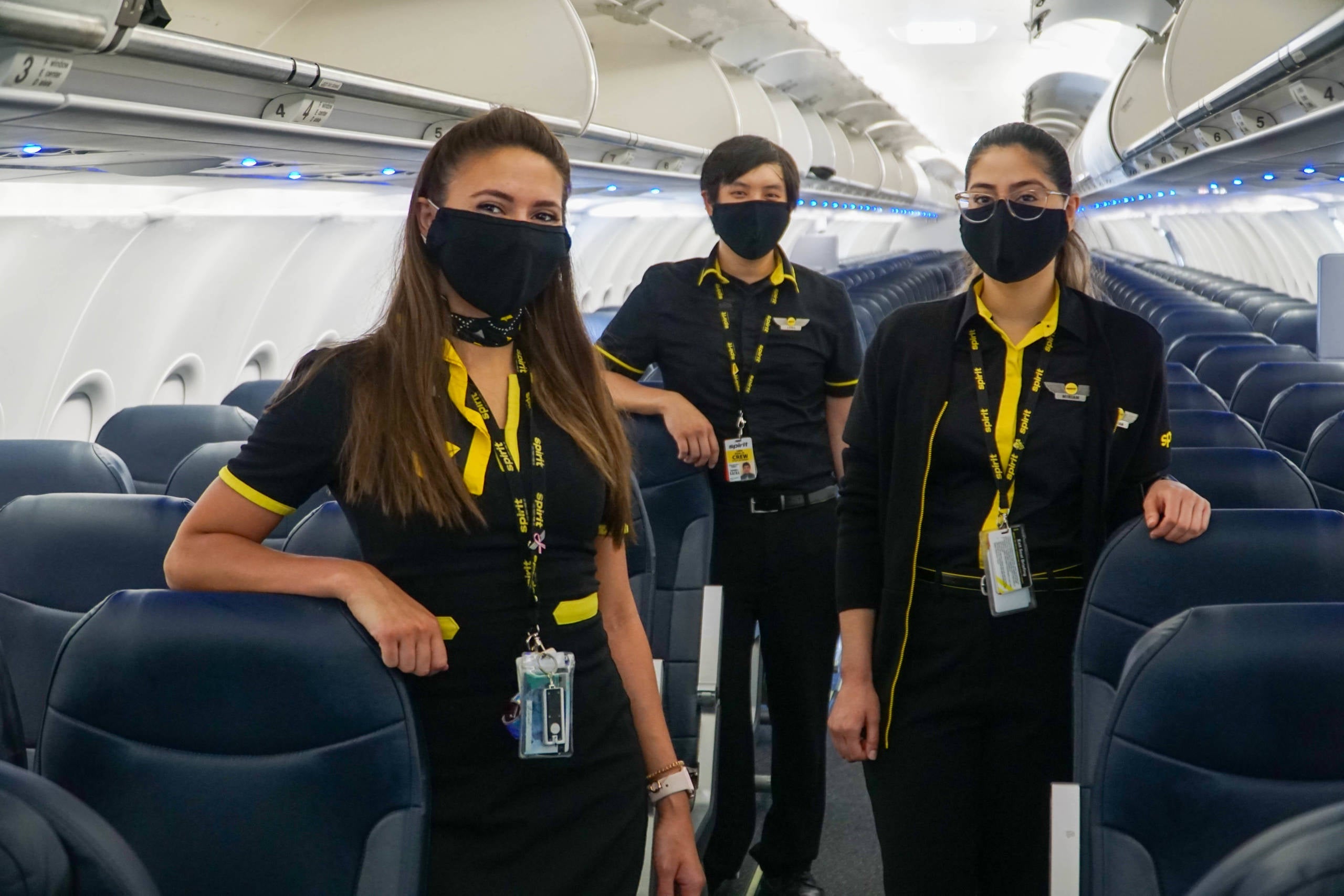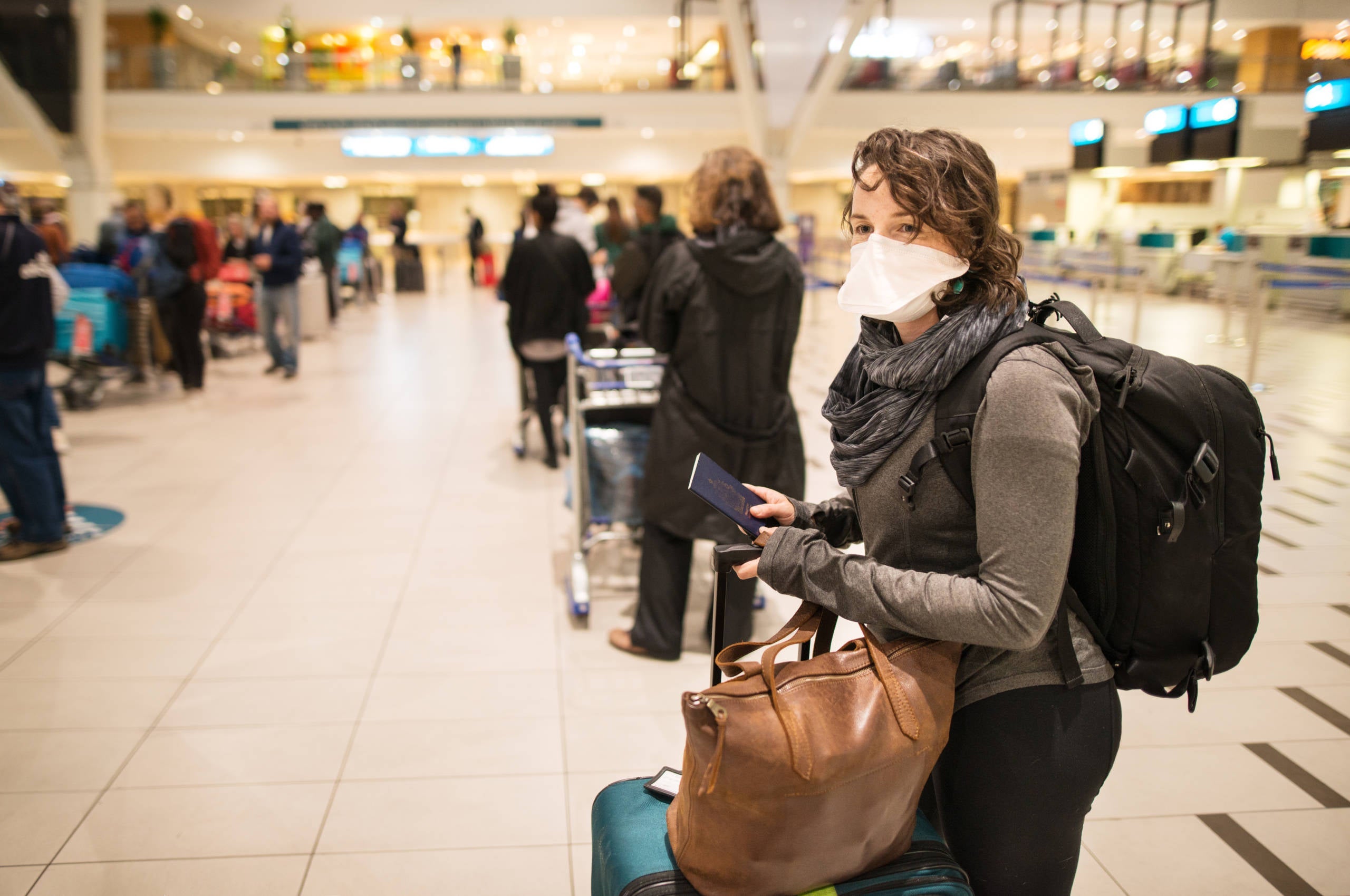The US airline that now has the strictest mask policy may surprise you
One of the most effective ways to slow the spread of the coronavirus is by wearing a mask. If you're flying a major U.S. carrier, you don't even have a choice — either fly with a mask or risk being banned from that airline.
Without a federal mandate on masks during travel, airlines are scrambling to keep their policies current with what's thought to be best practices. It seems like policies are getting modified every few days, making it hard to keep track of the latest developments. (Fortunately, we have a handy guide to airline health and social distancing policies.)
Yet as the mask policies evolve, carriers continue to remove exceptions and add exclusions to the types of masks that aren't safe.
The latest update comes from Spirit Airlines, one of America's largest ultra low-cost carriers. Turns out, the Miramar, Florida-based airline now has the strictest mask policy of the major U.S. carriers.
Sign up for the free daily TPG newsletter for more airline news!
Spirit removes exceptions for wearing a mask
Wearing a mask on Spirit Airlines is no longer negotiable. You can't claim a medical exception, nor can you say that you have an underlying condition that prevents you from wearing a mask.
Effective Wednesday (Aug. 5), every Spirit passenger must wear a mask from check-in through baggage claim. The only exception to this policy is children under the age of 2. No one else will be permitted to fly with Spirit unless they're wearing a mask.
According to Spirit,
We decided to remove exemptions to further protect our Team Members and Guests onboard and give them greater peace of mind. Guests who travel with us and choose not to comply with our face covering requirement will lose future flight privileges with Spirit.
Following how airlines handle medical exceptions has been interesting. On the one hand, there are airlines like Spirit which aren't accepting medical exemptions as excuses. Spirit's take: If you can't wear a mask, don't fly. American Airlines and Southwest are also doing the same.


On the other hand, there's Delta. The Atlanta-based carrier pioneered an interesting workaround to medical exemptions. In order to fly Delta without a mask, you'll need to arrive at the airport over an hour before departure to have a medical consultation with one of the airline's doctors. You'll only be allowed to fly without a mask after receiving an exception for the Delta doctor. Otherwise, you won't be allowed to board, and your ticket will be refunded.
Flying with children can be stressful. Adding mask requirements to the equation only make it harder. With Spirit, as well as AA and Southwest, no child is exempt from the mask requirement. Only infants under the age of 2 are OK.
Related: Does my child need to wear a face mask while traveling?
Spirit defines masks that can fly
The latest trend we've seen is airlines defining what exactly constitutes an acceptable face covering.
At the outset, carriers just said that you need to cover your nose and mouth. But then, airlines started to clamp down on masks that weren't fully effective.
Last week, Delta became the first carrier to ban masks with valves. Why? The exhaust from the mask flows freely into the environment, which doesn't help protect others from your sneezes or coughs.
Delta's move to ban these types of masks makes sense — and Spirit is now adopting the same policy.

Effective Aug. 5, all masks must have at least two layers of fabric. In addition, the following coverings will no longer be accepted as masks on Spirit:
- Open-chin triangle bandanas
- Face coverings containing valves or mesh material
- Face shields (note that face shields may be worn in addition to an acceptable face covering)
Planes are tight spaces. Even with hospital-grade HEPA filters, the mask policy helps limit the spread of respiratory droplets that can carry the coronavirus. But by wearing a mask with a built-in valve or one with an open-chin bandana, flyers could unintentionally be spreading the virus to others. That's why Spirit is getting serious about what masks are acceptable.
Related: Why I hope every single airline follows Delta's latest mask move
Enforcement is hard
Enforcing mask policies is hard. Much of the burden is placed on gate agents and on flight attendants, whose primary job is to ensure your safety, not mask compliance.

That's why Spirit has double-downed on the mask policy. With a stronger policy, enforcement is easier. No one except infants can claim an exemption, nor can people try using masks that aren't helpful in preventing the spread.
Related: Delta has banned more than 100 passengers for not wearing a mask
Bottom line
It may come as a surprise, but Spirit Airlines now has the strictest mask policy of any major U.S. carrier.
There are no longer exceptions to the rule. Unless you're an infant, you've got to wear a mask. Additionally, the carrier is cracking down on masks that are ineffective at preventing the spread of the virus.
It's only a matter of time until all airlines do this too.
TPG featured card
at Capital One's secure site
Terms & restrictions apply. See rates & fees.
| 5X miles | Earn 5X miles on hotels, vacation rentals and rental cars booked through Capital One Travel |
| 2X miles | Earn unlimited 2X miles on every purchase, every day |
Pros
- Stellar welcome offer of 75,000 miles after spending $4,000 on purchases in the first three months from account opening. Plus, a $250 Capital One Travel credit to use in your first cardholder year upon account opening.
- You'll earn 2 miles per dollar on every purchase, which means you won't have to worry about memorizing bonus categories
- Rewards are versatile and can be redeemed for a statement credit or transferred to Capital One’s transfer partners
Cons
- Highest bonus-earning categories only on travel booked via Capital One Travel
- LIMITED-TIME OFFER: Enjoy $250 to use on Capital One Travel in your first cardholder year, plus earn 75,000 bonus miles once you spend $4,000 on purchases within the first 3 months from account opening - that’s equal to $1,000 in travel
- Earn unlimited 2X miles on every purchase, every day
- Earn 5X miles on hotels, vacation rentals and rental cars booked through Capital One Travel
- Miles won't expire for the life of the account and there's no limit to how many you can earn
- Receive up to a $120 credit for Global Entry or TSA PreCheck®
- Use your miles to get reimbursed for any travel purchase—or redeem by booking a trip through Capital One Travel
- Enjoy a $50 experience credit and other premium benefits with every hotel and vacation rental booked from the Lifestyle Collection
- Transfer your miles to your choice of 15+ travel loyalty programs
- Top rated mobile app


